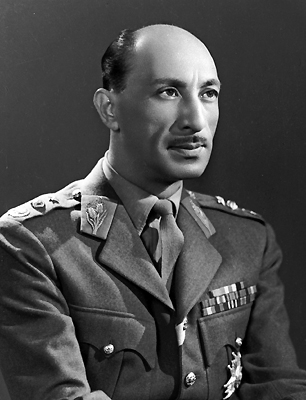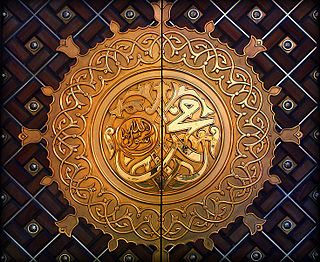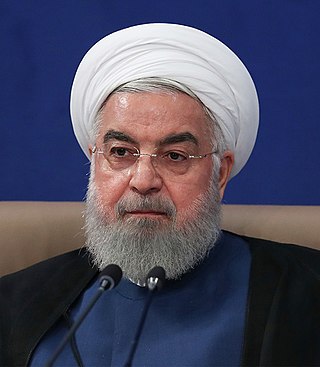| |||||
| Decades: | |||||
|---|---|---|---|---|---|
| See also: | Other events of 1999 Years in Iran | ||||
Events from the year 1999 in Iran.
| |||||
| Decades: | |||||
|---|---|---|---|---|---|
| See also: | Other events of 1999 Years in Iran | ||||
Events from the year 1999 in Iran.

Afghanistan, officially the Islamic Emirate of Afghanistan, is a landlocked country located at the crossroads of Central Asia and South Asia. It is bordered by Pakistan to the east and south, Iran to the west, Turkmenistan to the northwest, Uzbekistan to the north, Tajikistan to the northeast, and China to the northeast and east. Occupying 652,864 square kilometers (252,072 sq mi) of land, the country is predominantly mountainous with plains in the north and the southwest, which are separated by the Hindu Kush mountain range. Kabul is the country's capital and largest city. According to the World Population review, as of 2023, Afghanistan's population is 43 million. The National Statistics Information Authority of Afghanistan estimated the population to be 32.9 million as of 2020.

Mohammad Zahir Shah was the last king of Afghanistan, reigning from 8 November 1933 until he was deposed on 17 July 1973. Ruling for 40 years, Zahir Shah was the longest-serving ruler of Afghanistan since the foundation of the Durrani Empire in the 18th century.

The Taliban, which also refers to itself by its state name, the Islamic Emirate of Afghanistan, is an Afghan political and militant movement with an ideology comprising elements of Pashtun nationalism and the Deobandi movement of Islamic fundamentalism. It ruled approximately 75% of Afghanistan from 1996 to 2001, before it was overthrown by an American invasion after the September 11th attacks carried out by the Taliban's ally al-Qaeda. The Taliban recaptured Kabul in August 2021 following the departure of coalition forces, after 20 years of Taliban insurgency, and now controls the entire country. The Taliban government is not recognized by any country and has been internationally condemned for restricting human rights, including women's rights to work and have an education.

Hamid Karzai is an Afghan politician who served as the fourth president of Afghanistan from July 2002 to September 2014, including as the first elected president of the Islamic Republic of Afghanistan from December 2004 to September 2014. He previously served as Chairman of the Afghan Interim Administration from December 2001 to July 2002. He is the chief (khān) of the Popalzai Durrani tribe of Pashtuns in Kandahar Province.

Mohammad Khatami is an Iranian reformist politician who served as the fifth president of Iran from 3 August 1997 to 3 August 2005. He also served as Iran's Minister of Culture from 1982 to 1992. Later, he was critical of the government of subsequent President Mahmoud Ahmadinejad.

Ayman Mohammed Rabie al-Zawahiri was an Egyptian-born pan-Islamist militant and physician who served as the second general emir of al-Qaeda from June 2011 until his death in July 2022. He is best known for being one of the main orchestrators of the September 11 attacks.

The Pakistan national football team represents Pakistan in men's international football in FIFA-authorized events and is controlled by the Pakistan Football Federation, the governing body for football in Pakistan. Pakistan became a member of FIFA in 1948 and joined the Asian Football Confederation in 1950.

The Quds Force is one of five branches of Iran's Islamic Revolutionary Guard Corps (IRGC) specializing in unconventional warfare and military intelligence operations. U.S. Army's Iraq War General Stanley McChrystal describes the Quds Force as an organization analogous to a combination of the CIA and the Joint Special Operations Command (JSOC) in the United States. Responsible for extraterritorial operations, the Quds Force supports non-state actors in many countries, including Hezbollah, Hamas, Palestinian Islamic Jihad, the Houthi movement, and Shia militias in Iraq, Syria, and Afghanistan. According to Michael Wigginton et al., the Al-Quds Force is "a classic example of state-sponsored terrorism."

The 1996–2001 Afghan Civil War, also known as the Third Afghan Civil War, took place between the Taliban's conquest of Kabul and their establishing of the Islamic Emirate of Afghanistan on 27 September 1996, and the US and UK invasion of Afghanistan on 7 October 2001: a period that was part of the Afghan Civil War that had started in 1989, and also part of the war in Afghanistan that had started in 1978.

Iran and Pakistan established relations on 14 August 1947, the day of the independence of Pakistan, when Iran became the first country to recognize Pakistan. Both sides continue to cooperate economically where possible and have formed alliances in a number of areas of mutual interest, such as fighting the drug trade along their border and combating the insurgency in the Balochistan region.

Muhammad, also spelled Muhammed, Muhamad, Mohammad, Mohammed, Mahammad, Maxammed, Mehemmed, Mohamad, Mohamed, or in a variety of other ways, is an Arabic given male name meaning 'praiseworthy'. The name comes from the passive participle of the Arabic verb ḥammada (حَمَّدَ), meaning 'to praise', which itself comes from the triconsonantal Semitic root Ḥ-M-D. Believed to be the most popular name in the world, by 2014 it was estimated to have been given to 150 million men and boys.
Numerous civilians, including men, women, children, government officials, activists, secular intellectuals and clerics have been victims of assassination, terrorism, or violence against non-combatants, over the course of modern Iranian history. Among the most notable acts of terrorism in Iran in the 20th century have been the 1978 Cinema Rex fire and the 1990s chain murders of Iran.
The following lists events that happened during 1994 in Afghanistan.

Mohammad Hamid Ansari is an Indian statesman and retired Indian Foreign Service (IFS) officer who was the 12th vice president of India from 2007 to 2017.

The Afghan conflict is a term that refers to the series of events that have kept Afghanistan in a near-continuous state of armed conflict since the 1970s. Early instability followed the collapse of the Kingdom of Afghanistan in the largely non-violent 1973 coup d'état, which deposed Afghan monarch Mohammad Zahir Shah in absentia, ending his 40-year-long reign. With the concurrent establishment of the Republic of Afghanistan, headed by Mohammad Daoud Khan, the country's relatively peaceful and stable period in modern history came to an end. However, all-out fighting did not erupt until after 1978, when the Saur Revolution violently overthrew Khan's government and established the Democratic Republic of Afghanistan. Subsequent unrest over the radical reforms that were being pushed by the then-ruling People's Democratic Party of Afghanistan (PDPA) led to unprecedented violence, prompting a large-scale pro-PDPA military intervention by the Soviet Union in 1979. In the ensuing Soviet–Afghan War, the anti-Soviet Afghan mujahideen received extensive support from Pakistan, the United States, and Saudi Arabia in a joint covert effort that was dubbed Operation Cyclone.

Hassan Rouhani is an Iranian politician who served as the seventh president of Iran from 2013 to 2021. He is also a sharia lawyer ("Wakil"), academic, former diplomat and Islamic cleric. He served as a member of Iran's Assembly of Experts from 1999 to 2024. He was a member of the Expediency Council from 1991 to 2013, and also was a member of the Supreme National Security Council from 1989 to 2021. Rouhani was deputy speaker of the fourth and fifth terms of the Parliament of Iran (Majlis) and Secretary of the Supreme National Security Council from 1989 to 2005. In the latter capacity, he was the country's top negotiator with the EU three, UK, France, and Germany, on nuclear technology in Iran, and has also served as a Shia mujtahid, and economic trade negotiator.
Events in the year 2014 in the Islamic Republic of Iran.
Events from the year 1989 in Iran.

The following lists events that happened during 1981 in Iran.
Events from the year 1980 in Iran.